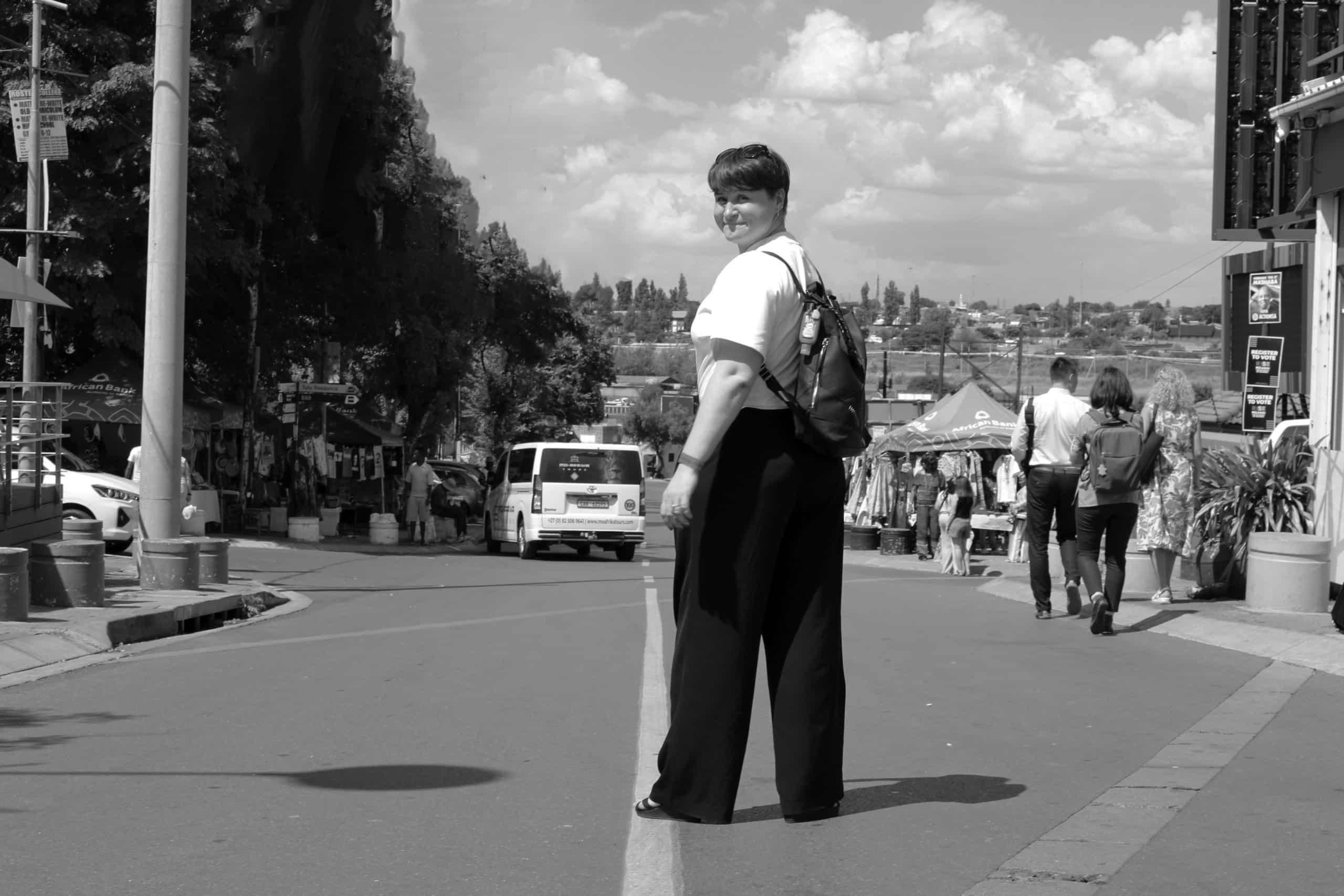On a bright summer day in March in South Africa, Oleksandra Romantsova is at Vilakazi Street in Johannesburg’s sprawling Soweto township. She now has a connection with this historic street that has produced two Nobel Peace Prize laureates – Nelson Mandela and Archbishop Desmond Tutu.
In 2022, the Center for Civil Liberties, where she is Executive Director in Ukraine, also won the Nobel Peace Prize for its advocacy and work documenting war crimes as a result of Russia’s full-scale invasion of Ukraine.
Romantsova is wearing blue nail polish and a big smile, as she speaks about education, children, women and peace. The Sakhumzi restaurant where we are is vibrant with chatter, color, and South African culinary specialties, and Romantsova has a full view of the street, from one end to another, marveling at the houses where Tutu and Mandela lived.
She harks back to that emotional moment when she received news, on the phone, of the Nobel Peace Prize win in 2022.
“[When] they called, I was startled. After they told me, all my English left my head,” Romantsova laughs. “I think in the end, I cried.”
Loading...
Romantsova started working at the Center for Civil Liberties in Kyiv, Ukraine, a decade ago. The human rights activist subsequently became Executive Director and is currently documenting the ongoing war. “I’ve been going to each village, to see how many people have been killed. I have seen torture and damaged schools and hospitals. I have seen the streets and nice places absolutely destroyed. That’s why often, when we speak about justice, nobody reacts normally. Nobody reacts enough to stop them. When you don’t have justice, evil always wins.”
Part of her work is traveling with her colleagues to expound on regional security, children’s rights, and nuclear security. The young democracy of South Africa intrigues her, as she sees how young people have become heavily involved with human rights justice.
“Because we need a lot that needs to be built, and started earlier,” Romantsova explains. “We need children from school to know about their rights… democracy is not only what you can get, but democracy is also what you’re responsible for.”
The Center for Civil Liberties joins a coalition of Ukrainian human rights organizations whose aim is to bring to justice any and all perpetrators responsible for war crimes in Ukraine, and have reportedly registered more than 33,000 potential violations, including war crimes, crimes against humanity, crimes of aggression and genocide.
Part of Romantsova’s work is to also support women.
She says there are as many as 60,000 women on the frontline in Ukraine. The “Soviet Union tradition” dictated that women could not take up jobs as professional snipers, but could be translators, kitchen staff or medicine workers.
“Now that we have fought to have women [there], we have had to [overhaul] the whole system. For example, now volunteers support women by having [special bulletproof vests] for them because the one for men will not work for women.”
Romantsova sees South Africa’s freedom movement as a template for Ukraine.
“South Africa’s solidarity movement is something that is absolutely impressive,” she says. “It’s not only about the history of the freedom for Africans, but I see a lot of
reflection, and a lot of connection with topics for women’s rights, children’s rights and all our common responsibilities for working and organizing this as a common mechanism to support people. “The solidarity movement of South Africa is a great example for us and we really want to collaborate with this true human spirit, which is exactly what I feel during all my trips to South Africa.”
Loading...
